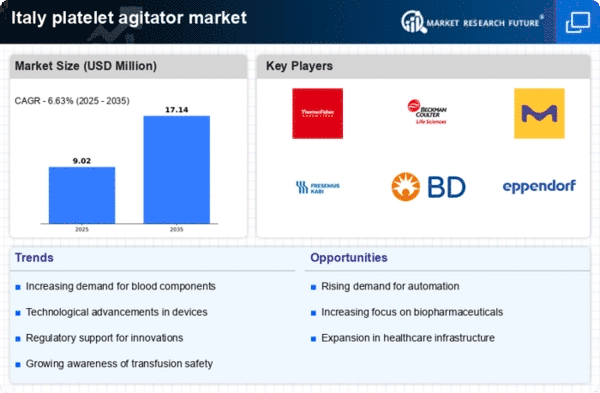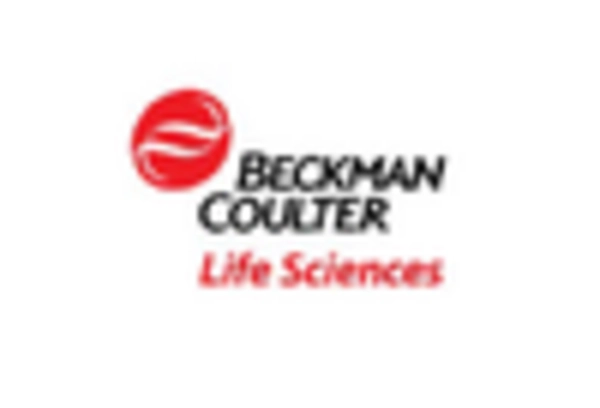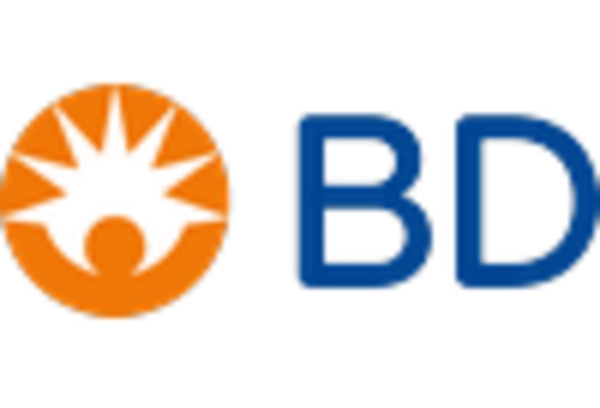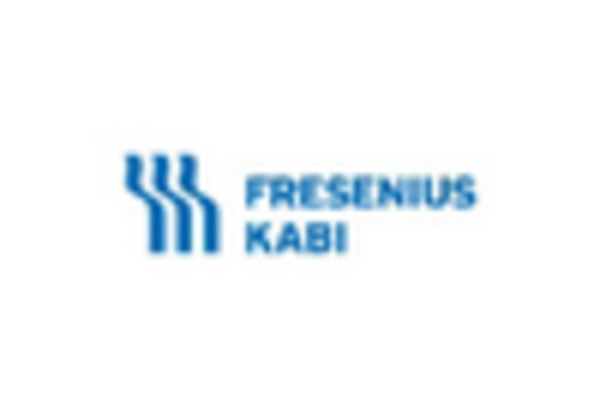Increasing Healthcare Investments
The platelet agitator market in Italy is experiencing a notable boost due to increasing investments in healthcare infrastructure. The Italian government has been allocating substantial funds to enhance medical facilities, which includes the procurement of advanced medical equipment. In 2025, healthcare spending is projected to reach approximately €200 billion, reflecting a growth of around 5% from previous years. This financial commitment is likely to facilitate the acquisition of platelet agitators, which are essential for blood component processing. As hospitals and blood banks upgrade their technologies, the demand for efficient and reliable platelet agitators is expected to rise, thereby driving market growth. Furthermore, the emphasis on improving patient outcomes through better blood management systems may further stimulate the platelet agitator market in Italy.
Rising Awareness of Blood Donation
There is a growing awareness regarding the importance of blood donation in Italy, which is positively influencing the platelet agitator market. Campaigns aimed at educating the public about the need for blood products have led to an increase in donations. In 2025, it is estimated that blood donation rates could rise by 10%, creating a higher demand for processing equipment, including platelet agitators. This heightened awareness not only encourages more individuals to donate but also necessitates the use of advanced technologies to ensure the quality and safety of blood products. Consequently, the platelet agitator market is likely to benefit from this trend, as blood banks and hospitals seek to enhance their processing capabilities to meet the increasing supply of donated blood.
Expansion of Blood Component Therapies
The expansion of blood component therapies in Italy is emerging as a crucial driver for the platelet agitator market. With advancements in medical research, there is an increasing focus on utilizing specific blood components for therapeutic purposes, such as platelet-rich plasma (PRP) treatments. This trend is expected to grow, with the market for blood component therapies projected to increase by 20% in the coming years. As healthcare providers adopt these innovative therapies, the demand for specialized platelet agitators that can efficiently process and prepare blood components will likely surge. This shift towards targeted therapies not only enhances patient care but also creates a robust market opportunity for manufacturers of platelet agitators, as they cater to the evolving needs of the healthcare sector.
Regulatory Compliance and Quality Standards
The platelet agitator market in Italy is significantly influenced by stringent regulatory compliance and quality standards set by health authorities. The Italian Medicines Agency (AIFA) has established guidelines that mandate the use of certified equipment for blood processing. Compliance with these regulations is essential for hospitals and blood banks to ensure the safety and efficacy of blood products. As a result, there is a growing need for high-quality platelet agitators that meet these regulatory requirements. In 2025, it is anticipated that the market for compliant medical devices will expand by 12%, driven by the necessity for adherence to safety standards. This regulatory landscape is likely to propel the demand for advanced platelet agitators, as facilities seek to maintain compliance while enhancing their operational capabilities.
Technological Integration in Blood Processing
The integration of advanced technologies in blood processing is a significant driver for the platelet agitator market in Italy. Innovations such as automation and real-time monitoring systems are being increasingly adopted in blood banks and hospitals. These technologies enhance the efficiency and safety of blood component separation, which is crucial for effective patient care. In 2025, the market for automated blood processing equipment is expected to grow by approximately 15%, indicating a strong trend towards modernization. As facilities invest in these technologies, the demand for sophisticated platelet agitators that can seamlessly integrate with automated systems is likely to increase. This trend suggests a promising future for the platelet agitator market, as healthcare providers strive to improve operational efficiency and patient outcomes.
















